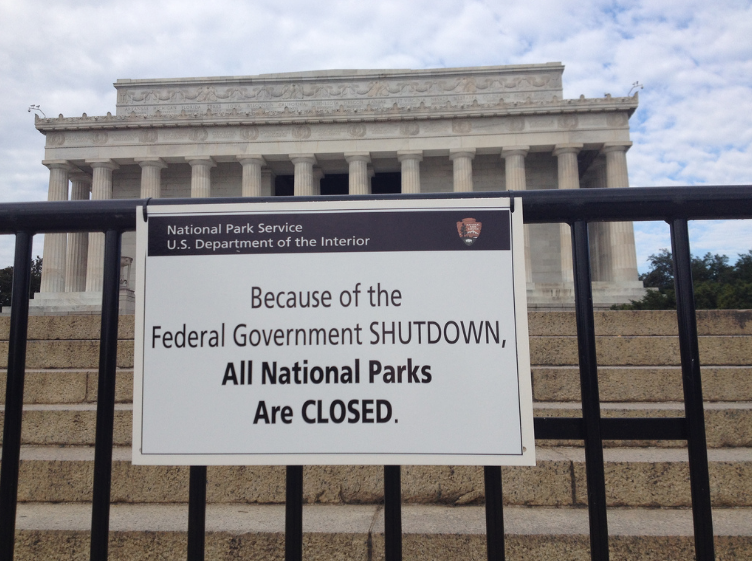Government shutdown for dummies
The government shutdown. The big, scary thing everyone has been talking about but doesn’t really seem to know exactly what it means. The truth is that while, yes, thousands of people have been both forced to not work or to work with no pay, the shutdown does not mean that most of the essential parts of the working government are closed.
The first most important clarification to make when discussing the shutdown is that it is the longest government shutdown in U.S. history, surpassing the one from 1995-1996 that lasted for 21 days. Any type of government shutdown usually is caused by budgetary issues that are not resolved between both houses of Congress and the President by the end of the budget cycle. This causes deadlock, usually leading to minimal problems with the hundreds of thousands of people employed by the government and is quickly resolved.
The problem with this shutdown, fueled by the disagreement between Trump and the houses of Congress about his requested $5.7 billion for the border wall, is that the extensive time that the shutdown has lasted means that all the workers employed by the 15 government agencies are affected by the shutdown. These include the commerce, interior, agriculture, transportation, homeland security, and treasury departments. With 800,000 workers affected by the shutdown, 420,000 are working without pay, and 380,000 are currently furloughed. These workers will only be able to be paid once the government comes to some sort of a budgetary agreement about the wall. Negotiations, while being considered a priority, aren’t seeming to come nearly close enough to agreeing on a compromise as soon as many of these government workers desperately need it to. While the workers will be fully compensated, whether they are currently working without pay or are furloughed, after the shutdown ends, many workers are having trouble simply surviving on no pay until then.
There are many misconceptions about the issue that needs to be disputed, however. No, taxes are not going to be delayed due to the shutdown. While there were rumors about a delay at the beginning of the shutdown when so many agents were furloughed, the IRS has sent employees back to work so that tax refunds are still able to be returned on time. Traditionally, the IRS doesn’t issue tax refunds during government shutdowns, but due to the extended length that the shutdown has lasted, more and more people are being sent back to work every day to make sure that correct operations are to be carried out.
Additionally, food inspections have not been ceased, and most FDA employees are still working without pay. There are a few foods that are affected by the shutdown, but they are almost entirely foods that are not at risk of food-borne illnesses. If you are still worried about the safety of food during the period of the shutdown, the best thing to do is to simply practice safe food preparation techniques and to thoroughly wash anything that seems susceptible.
The reason for the shutdown itself has been under heavy criticism, as a country divided on whether a border wall is necessary is seemingly being forced to agree to a wall simply to get the hundreds of thousands of workers back to being provided for. The issue of immigration has heavily integrated itself into President Trump’s term, causing extreme tension, but this seems to be the climax point of the entire immigration debate.
Beyond the immediate criticism of the wall comes the criticism of the price for the wall. Trump is asking for $5.7 billion, an amount which has been under heavy fire from those that see the money as better being used for other, seemingly more pressing issues. One common argument revolves around the Flint, Michigan water crisis that has persisted for years at this point, and the fact that the amount needed to pay for new pipes in Flint is a small portion of the cost of the border wall and yet more of the general public has rallied around raising more money for the border wall than for the people of Flint. Other uses suggested for that much budgetary money include providing Medicare to over a million people, increasing funding for renewable energy, and doubling the funding for immigration services.
Despite several misconceptions about the shutdown, the most important thing to consider is that there are real American citizens, real people being affected in huge numbers, and only with a resolution of the border wall issue will the shutdown end and pay reach those thousands of people.

I'm a senior and this is my first year on the newspaper staff. This year I want to write articles over politics and general new happenings in the school....

